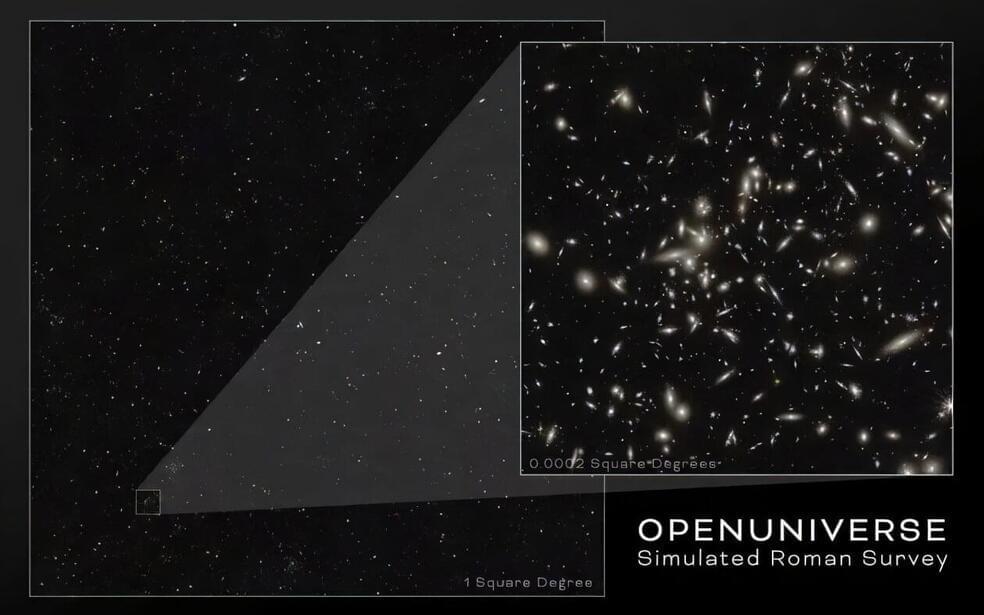Astronomers have released a set of more than a million simulated images showcasing the cosmos as NASA’s upcoming Nancy Grace Roman Space Telescope will see it. This preview will help scientists explore Roman’s myriad science goals.
“We used a supercomputer to create a synthetic universe and simulated billions of years of evolution, tracing every photon’s path all the way from each cosmic object to Roman’s detectors,” said Michael Troxel, an associate professor of physics at Duke University in Durham, North Carolina, who led the simulation campaign. “This is the largest, deepest, most realistic synthetic survey of a mock universe available today.”
The project, called OpenUniverse, relied on the now-retired Theta supercomputer at the DOE’s (Department of Energy’s) Argonne National Laboratory in Illinois. In just nine days, the supercomputer accomplished a process that would take over 6,000 years on a typical computer.









Leave a reply